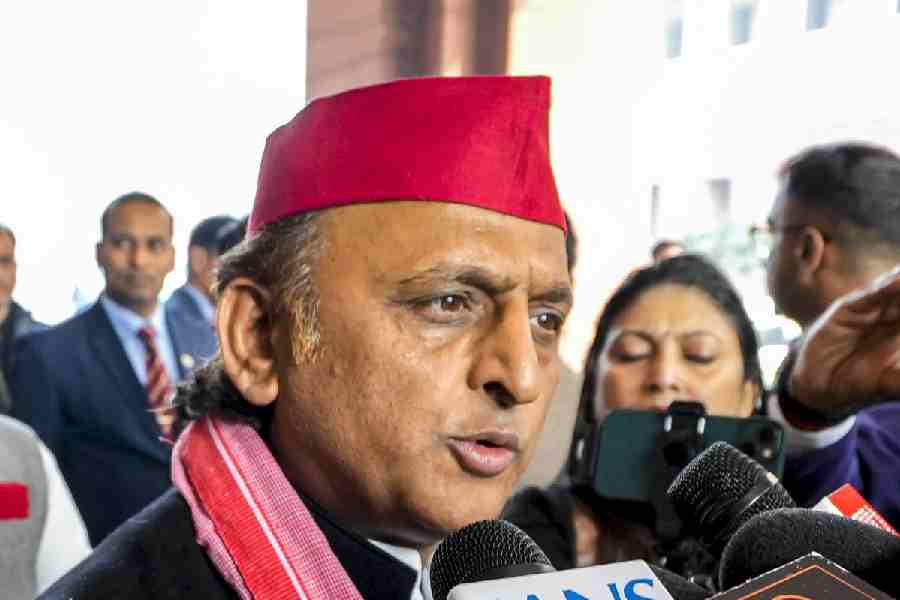The mystic and the masseuse
 |
The Wordkeepers (Duckbill, Rs 225) by Jash Sen takes up Hindu mythology and weaves a tale that begins at the end of the Mahabharat. Ashwatthama is cursed to wander the earth as a leprous immortal. The narrative jumps to 2028, when it is revealed to 14-year-old Anya (‘the other’ in Sanskrit) Sharma that her mother was a wordkeeper, and has been kidnapped by Kali (the personification of the yug, not the goddess). The wordkeepers carry the word of the coming of the Kalki avatar from generation to generation. Anya has to set out to find a ‘Cheeranjivi’ (immortal) and the pieces of Krishna’s samantak gem from the other surviving wordkeepers. Sen’s plot is well developed and she makes adept use of both allegory and characters from Hindu myth and epics: Dhoomavati is a cigarette-smoking, crematorium-residing, crow-riding goddess who “won’t leave Kolkata if she can help it”, Parashuram, known for decimating the Kshatriyas 21 times, is a gun-wielding, combat-gear-wearing camp trainer. Garuda is a falcon. Sen’s storytelling is both fast and layered. It gives the reader the delicious pleasure of slowly putting clues together to identify characters before they are revealed. Sen addresses an essentially Indian consciousness. Amidst the riot of characters from Hindu mythology, the protagonist is a Muslim boy, Bilal. He thinks judging is “complicated”, but is faced with a Narnia-esque moral polarity. This is a delightful book.
ANOTHER CHANCE AT LIFE (Penguin, Rs 199) by Shreya Prabhu Jindal tells the story of 18-year old Aditya Arora, who has lost his first love, Neelakshi, to cancer. He joins one of the most prestigious colleges in the country and realizes, to his horror, that his Victorian Lit. professor is Neelakshi’s father, Krishnan. Owing to a host of unresolved issues between them, especially after Neela’s death, Krishnan hates Aditya and is determined to make his life a living hell. Aditya struggles to come to terms with the tragedy and Krishnan’s — apparently inexplicable — animosity. Among other things, Jindal’s portrayal of the curse of memory is flawless. This is a well-written novel. The plot holds the reader’s attention and moves seamlessly from the narration of the past to that of the present. It also teaches some clear lessons in acceptance and growth.
 |
Massage no boom boom (HarperCollins, Rs 299) by Anand Prabhu is about a massage addict who attributes his addiction to his “insatiable” craving for the human touch. It is a travelogue that begins in the West, moves to hedonistic East Asia, and culminates in India, where he has to struggle to find one decent massage parlour. Prabhu’s writing is wickedly humorous and outrageously frank. The narrator proudly proclaims, “And they gave me a towel to cover my modesty — which was a scream, because modesty I have none. I may have a host of other virtues... but modesty, not an effing shred of it, thank God!” When a masseuse asks him what needs to be “done for the private parts”, he tells her, “I am a writer. I have no private parts.” He talks about the “Indian looking class” and its “loincloth-cum-Vedic-G-string” of sexual repression. At times his voice sounds self-righteous and almost chauvinistic. Yet, it is not entirely offensive, since it is unpretentious.
My lawfully wedded husband and other stories (Westland, Rs 250) by Madhulika Liddle is a collection of thriller short stories. They take up the darker emotions and urges of the mind. Liddle has a way with black humour. The stories end with twists in the tale, many of which, however, are not extraordinary. Liddle’s sleek writing makes up for what the stories lack in shock factor, and her descriptions build the perfect ambience for the plots.










